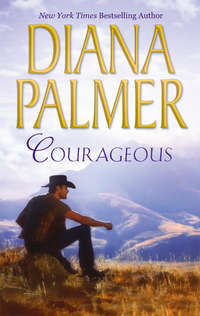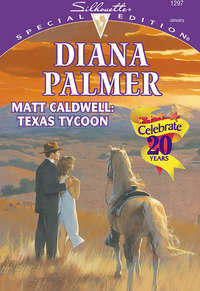
Полная версия
After Midnight
“Why?”
“I don’t know. You seem oddly familiar to me, as if I know you. But I don’t believe that I’ve ever seen you before,” she said quietly.
He shrugged. “Maybe I have that kind of face.”
Her eyebrows arched. “You?”
He smiled, just faintly. “Thanks.” He sipped his coffee and pursed his lips. “Very nice. Just strong enough.”
“I make good coffee. It’s my only real accomplishment, except for omelets. I’m much too busy to learn how to cook.”
“What does your poor friend eat?” he asked.
“He lives on fast food and restaurant chow, but he isn’t home much.”
“What does he do?”
She studied him. “He’s in energy,” she said, which was the truth. He sat on the Energy and Commerce Committee that dealt with it.
“Oh. He works for a power plant?”
“That’s pretty close,” she agreed, hiding the amusement in her eyes as she thought about the power that particular committee wielded nationally.
“And what do you do?”
“Moi?” she laughed. “Oh, I sculpt.”
“What?”
“People.”
He looked around at the furniture, but the only artwork of any kind that was visible were some prints she’d purchased.
“I sell my work in galleries,” she told him.
He decided to reserve judgment on that reply. The house was a dump, and she had to know it. She obviously had little money and lived with a man who had even less. He knew that he couldn’t afford to trust her. He wished he knew why he was certain of that. “Do you have any of your work here?”
“A bust or two,” she said. “I’ll show you later, if you like.”
He sampled the omelet. “You’re good.”
“Thanks.” She studied his face. It was pale, and he seemed to be having a hard time keeping his eyes open. “You’re drowsy.”
“Yes. I don’t know how I know it, but I’m pretty sure that I haven’t been sleeping well lately.”
“Woman trouble?” she asked with a knowing smile.
He frowned. “I’m not sure. Perhaps.” He looked up. “I can’t possibly stay here…”
“Where would you go?” she asked reasonably. “You can’t wander up and down the beach here, the police will pick you up for vagrancy. Do you remember where you live?”
“I don’t even know my name,” he confessed heavily. “You can’t imagine how intimidating that is.”
“You’re right.” She searched his tanned face, his dark eyes. He looked incredibly tired. “Why don’t you have an early night? I’ll send Chad in to check you out when he swings by. He’s a friend,” she added. “He’ll do it as a favor, so you don’t have to worry about his fee. Things will look so much better in the morning. You might remember who you are.”
“God, I hope so,” he said gruffly. “The man…who lives here. You said he’d be here later?”
She nodded, her eyes as steady as if she’d been telling the truth, and he was fooled.
“Then it will be all right, I suppose. I appreciate your trust. I could be anybody.”
“So could I,” she said in a menacing tone, grinning.
He got the point. When she showed him to the guest bedroom, he fell on the bed without bothering to turn back the covers. Within seconds, he was sound asleep.
He was still sleeping when Chad stopped by to check him. Nikki waited in the living room until the doctor came out, bag in hand, gently closing the door.
“He’s all right,” he assured her with a grin, his blond good looks fairly intimidating to her because he still reminded her a little of her ex-husband. “A little disorientation, but that will pass quickly. There’s been no real damage. By morning he should remember his name and after he gets past the very terrible headache he’s going to have, he should be all right. I’m leaving some tablets for him when he wakes up groaning.” He produced them from his bag and handed them to Nikki. “Otherwise, you know what to look for. If you get in trouble all you have to do is call me. Okay?”
“Okay. Thanks, Chad.”
He shrugged. “What are friends for?” he asked with a big grin. He left, closing the door gently behind him.
Later, when Nikki went back to check on her houseguest, he was lying on his back, completely nude in the soft glow from the night-light on the wall.
Nikki stood and just stared at him helplessly, feeling her body tingle and burn with old familiar longings that she desperately tried to bank down. This man attracted her as even Mosby hadn’t—in the beginning. She looked at the long, muscular lines of his tanned body with aching need.
He must sunbathe nude, she thought idly. He was magnificent. Even that part of him that was most male didn’t offend or repel her. She was surprised at her own lack of inhibitions as she stared at him, feeling vaguely like a Peeping Tom. He did look vaguely familiar as well. That bothered her. Not as much, of course, as his body did in stark nudity.
Oddly, she found men revolting for the most part. This one was special. She loved the way his big body looked without clothes. She wondered how that hand, almost the size of a plate, would feel smoothing over her soft skin in the darkness.
The thought pulled her up short. She turned and went out of the bedroom, closing the door gently behind her.
Chapter Two
Nicole slept fitfully that night, haunted by images of her houseguest sprawled in magnificent abandon on the bed in the guest room. She woke up earlier than usual. She slipped into a neat blue patterned sundress before she went to the kitchen, barefoot, to make breakfast. It was a good thing that she had plenty of provisions, she thought. Judging by his size and build, the man in the guest room was a man with a more than ample appetite.
She’d just dished up scrambled eggs to go with the sweet rolls and sausages when the man came into the living room from Clayton’s bedroom. He was wearing the shorts she’d found for him, an old pair that Clay had worn, with the shirt whose edges didn’t quite meet in front. He looked out of sorts, and vaguely confused.
“Are you all right?” she asked immediately.
He glowered at her. “I feel like an overdrawn account. Otherwise, I suppose I’ll do.” He spoke without any particular accent, although there was a faint residual drawl there. His was not a Charleston accent, though, she mused; and she ought to know, because her own was fairly thick.
“I do have some aspirin, if you need them,” she said.
“I could use a couple, thanks.”
She went to get them while he sat down at the table and poured coffee into his cup and hers. He shook out a couple of aspirin tablets into his big hand and swallowed them with coffee.
“You’ve remembered, haven’t you?” she persisted.
“I’ve remembered a few things,” he confessed. “Not a lot.” He felt for his watch and frowned. Hadn’t he had one when he went into the water? A diver’s watch?
“Oh, I almost forgot!” She jumped up and reached onto the counter by the stove, producing the missing wristwatch. “Here. This was still on your wrist and almost unfastened when I found you. I stuck it in my robe pocket and didn’t notice it until this morning when I started to put the robe in the laundry. Good thing I didn’t wash it,” she laughed. “However do you tell time with something so complicated?”
She didn’t recognize a diver’s watch. Did that mean she didn’t realize how expensive it was?
He took it from her. “Thanks,” he said slowly.
“It still works, doesn’t it?” she asked idly as she ate her eggs. “I didn’t know they made waterproof watches.”
“It’s a diver’s watch,” he informed her, and then waited for her reaction.
“I see. Do you skin-dive?” she asked brightly.
He did, occasionally, when he wasn’t sailing his yacht. He didn’t want to mention that. “Sometimes,” he said.
“I wanted to learn, but I’m too afraid of water,” she told him. “I can’t even swim properly.”
“Then why have a beach house?” he asked curiously. “Or isn’t it yours?”
She saw the way he was looking at her and interpreted it correctly. That watch wasn’t cheap, and he’d apparently remembered more than he wanted her to know. So he thought she was a gold digger, did he? She was going to enjoy this.
“Well, no, it belongs to…” She stopped suddenly, not wanting to give too much away. His face was all too familiar, more so this morning. “It belongs to the man who owns this place. He lets me stay here when I like.”
He glanced around and his expression spoke volumes.
“The hurricane got it,” she said quickly. “He hasn’t had time to do many repairs.” That, at least, was true. But it didn’t sound that way to her guest. In fact, he looked even more suspicious.
He didn’t say anything else. He concentrated on the meal Nikki had prepared. His dark eyes slid over her pretty face and narrowed.
“What’s your name?” he asked curiously.
“Nikki,” she replied. Even if he knew of her family, he wouldn’t know of the nickname, which was used only by family and very close friends. “Do you remember yours?”
He studied her thoughtfully while he wavered between the truth and a lie. She was obviously a transient here, in her boyfriend’s house. He was new to the area. It was highly unlikely that she’d even know who he was if he introduced himself honestly. He kept a low profile. In his income bracket, it paid to do that.
He laughed at his own caution. This woman probably didn’t even know what the CEO of a corporation was. “It’s McKane,” he said offhandedly. “But I’m usually called Kane.”
Fortunately, Nikki had her eyes on her coffee cup. She didn’t show it, but inside she panicked. The familiar face she couldn’t place before now leaped into her consciousness vividly. She knew that name all too well, and now she remembered where she’d seen the face, in a business magazine of Clayton’s. Kane Lombard was reclusive to the point of being a hermit, and the photograph of him had been a rarity for such a successful businessman.
Her brother had just had a very disturbing run-in with Kane Lombard over an environmental issue in Charleston. Lombard, she knew, was backing the leading Democratic contender for Clayton’s House seat.
Her mind worked rapidly. She didn’t dare let Lombard know who she was, now. They’d spent the night together, albeit innocently. Wouldn’t that tidbit do Clayton a lot of good in a national election? In some parts of the country, especially this one, morality was still enough to make or break a politician; even his sister’s morality. And Lombard was helping the opposition.
Her fingers closed around her coffee cup and she lifted her eyes with a schooled expression on her face. Everything would be all right. All she had to do was ease him out of here without letting on that she knew him. Since he didn’t travel in the same circles as Clayton and herself, chances were good that she’d never see him up close again anyway.
“It’s a nice name. I like it.” She smiled as if she genuinely didn’t recognize him.
He relaxed visibly. His firm mouth tugged into a smile. “Thanks for taking care of me,” he added. “It’s been a long time since anyone had to do that.”
“Nobody’s invulnerable,” she reminded him. “But next time, you might check that there aren’t any rocks around when you decide to use the Jet Ski.”
“I’ll do that.”
He finished his coffee and reluctantly, she thought, got to his feet. “I’ll return your friend’s clothes. Thanks for the loan.”
“I can run you home, if you like,” she offered, knowing full well that he wouldn’t risk letting her see where he lived. He thought she was an opportunist. She could have laughed out loud at the very idea.
“No, thanks,” he said quickly, smiling to soften the rejection. “I need the exercise. You’ve been very kind.” His eyes were shrewd. “I hope I can repay you one day.”
“Oh, that’s not necessary,” she assured him as she stood. “Don’t we all have a moral duty to help each other out when we’re in need?” She looked at her slender, well-kept hands. “I’m sure you’d do the same for me.”
That last bit was meant to rattle him, but it didn’t work. She looked up, impishly, and he was just watching her with a lifted eyebrow and a faintly indulgent smile.
“Of course I would,” he assured her. But he was wary again, looking for traps, even while his eyes were quietly bold on her soft curves.
“It was nice meeting you,” she added.
“Same here.” He gave her a last wistful appraisal and went with long, determined strides toward the front door. He walked as if he’d go right over anything in his path, and Nikki envied him that self-confidence. She had it, to a degree, but in a standing fight, he was going to be a hard man to beat. She’d have to remember and warn Clayton not to underestimate Lombard; and do it without revealing that the source of her information was the man himself.
The rambling beach house where Kane lived was in the same immaculate shape he’d left it. His housekeeper had been in, apparently unconcerned that he was missing. That shouldn’t surprise him. Unless he paid people, no one seemed to notice if he lived or died.
He chided himself for that cynical thought. Women did agonize over him from time to time. He had a mistress who pretended to care in return for the expensive presents he gave her with careless affection. But no one cared as much as his son had. He closed his eyes and tried not to remember the horror of his last sight of the young boy.
There was a portrait of his son with his late wife on the side table. He looked at that, instead, remembering David as a bright young man with his mother’s light hair and eyes and her smile. Although he and Evelyn had grown apart over their years together, David had been loved and cherished by both of them. See what you get for sticking your nose in where it doesn’t belong, he thought. Just a routine business trip, you said, and they could go with you. Then all hell broke loose the day they arrived, and he and his family were caught innocently in the cross fire.
He’d blamed himself bitterly for all of it, but time was taking away some of the sting. He had to go on, after all.
The new automotive plant in an industrial Charleston suburb had certainly been a step in the right direction. Planned long before the death of his family, it had just begun operation about the time they were buried. Now it was the lynchpin of his sanity.
He changed into a knit shirt and shorts, idly placing his borrowed clothing to be washed before he returned it. Nikki’s sparkling green eyes came to mind and made him smile. She was so young, he mused, and probably a madcap when she set her mind to it. For a moment he allowed himself to envy her lover. She had a pretty body, slender and winsome. But he had Chris when he needed a woman desperately, and there was no place for a permanent woman in his life. He made sure that Chris knew it, so that she wouldn’t expect too much. Marriage was out.
He picked up the telephone and dialed the offices of the Charleston plant. What he needed, he told himself, was something to occupy his mind again.
“Get Will Jurkins on the line,” he replied to his secretary’s polite greeting.
“Yes, sir,” she said at once.
A minute later, a slow voice came on the line. “How’s the vacation going, Mr. Lombard?”
“So far, so good,” Kane said carelessly. “I want to know why you’ve terminated that contract with the Coastal Waste Company?”
There was a pause. Jurkins should have realized that his superior would fax that information up to Kane Lombard. Sick or not, Ed Nelson was on the ball, as many plant managers were not. “Well…uh, I had to.”
“Why?”
The word almost struck him. Jurkins wiped his sweaty brow, glancing around from his desk to the warehouse facility where dangerous materials were kept before they were picked up by waste disposal companies. It was considered less expensive to hire that done rather than provide trucks and men to do it. The city could handle toxic substances at its landfill, but Lombard International had contracted CWC to do it since its opening.
“I believe I mentioned to you, Mr. Lombard, that I noticed discrepancies in their invoices.”
“I don’t remember any such conversation.”
Jurkins kept his head, barely. “Listen, Mr. Lombard,” he began in a conciliatory tone, “you’re a busy man. You can’t keep up with all the little details of a plant this size. You sit on the board of directors of three other corporations and the board of trustees of two colleges, you belong to business organizations where you hold office. I mean, how would you have the time to sift through all the day-to-day stuff here?”
Kane took a breath to stem his rush of temper. The man was new, after all, as chief of the waste disposal unit. And he made sense. “That’s true. I haven’t time to oversee every facet of every operation. Normally, this would be Ed Nelson’s problem.”
“I know that. Yes, I do, sir. But Mr. Nelson’s had kidney stones and he had to have surgery for them last week. He’s sort of low. Not that he doesn’t keep up with things,” he added quickly. “He’s still on top of the situation here.” That wasn’t quite true, but the wording gave Lombard the impression that Nelson had agreed with Jurkins’s decision to replace CWC.
Kane relaxed. Jurkins was a native of Charleston. He’d know the ins and outs of sanitation, and surely he’d already have a handle on the proper people to do a good job. “All right,” he said. “Who have you contracted with to replace CWC?”
“I found a very reputable company, Mr. Lombard,” he assured his boss. “Very reputable, indeed. In fact, two of the local automotive parts companies use them. It’s Burke’s.”
“Burke’s?”
“They’re not as well-known as CWC, sir,” Jurkins said. “They’re a young company, but very energetic. They don’t cost an arm and a leg, either.”
Kane’s head was hurting. He didn’t have time for this infernal runaround. He’d ask Nelson when he got back to the office the following week.
“All right, Jurkins. Go ahead and make the switch. I’ll approve it, if there’s any flak,” he said. “Just make sure they do what they’re supposed to. Put Jenny back on the line.”
“Yes, sir! Have a good vacation, sir, and don’t you worry, everything’s going along just fine!”
Kane made a grunting sound and waited for his secretary to come back on the line. When she did, he began shooting orders at her, for faxes to be sent up to his machine, for contract estimates, for correspondence. He hadn’t a secretary here and he hesitated to ask for Jenny to join him, because she had a huge crush on him which he didn’t want to encourage. He could scribble notes on the letters for answers and fax them back to her. Yes, that would work.
While Kane was debating his next move, a relieved Will Jurkins pushed back his sweaty red hair and breathed a long sigh, grinning cagily at the man standing beside him.
“That was a close one,” he told the man. “Lombard wanted to know why I made the switch.”
“You’re getting enough out of this deal to make it worth the risk,” came the laconic reply. “And you’re in too deep to back out.”
“Don’t I know it,” Jurkins said uneasily. “Are you sure about this? I don’t want to go to jail.”
“Will you stop worrying? I know what I’m doing.” He slipped the man a wad of large bills, careful not to let himself be seen.
Jurkins grimaced as he counted the money and quickly slipped it into his pocket. He had a child with leukemia and his medical insurance had run out. He was out of choices and this cigar-smoking magician had offered him a small fortune just to switch sanitation firms. On the surface, there was nothing wrong with it. But he was uneasy, because Burke’s sanitation outfit had already been in trouble with the environmental people for some illegal dumping.
“Burke’s is not very reliable,” he began, trying again. “And I already made one major mistake here, letting that raw sewage get dumped accidentally into the river. If they catch Burke putting anything toxic in a bad place, it will look pretty bad for Lombard International.”
“Burke’s needs the business,” the raspy-voiced man said. “Trust me. It’s just to help him out. There’s no way it will be traced back to you. You need the money don’t you?” When Jurkins nodded, the man patted him on the shoulder and smiled, waving the cigar around. “Nobody will know. And I was never here. Right?”
“Right.”
Jurkins watched the man leave by the side door. He went into the parking lot and climbed into a sedate gray BMW. A car like that would cost Jurkins a year’s salary. He wondered what his benefactor did for a living.
Clayton Seymour had gone down the roster of Republican representatives over a new bill which affected cable television rates. He and his legislative committee—not to mention part of his personal staff—were helping his friend, the minority whip, gather enough representatives together for a decisive vote on the issue. But he was going blind in the process. He looked out his window at the distant Washington, D.C., skyline and wished he was back home in Charleston and going fishing. He maintained only two district offices, whereas most of the other House members had anywhere from two to eight.
Each of those offices back home in South Carolina had full-time and part-time staffers who could handle requests from constituents. In addition, he’d appointed a constituent staff at his Washington office, along with his legislative, institutional, and personal staff. It sounded like a lot of people on the payroll, but there were actually only a handful involved and they were eminently qualified. Most had master’s degrees. His district director had a Ph.D. and his executive legislative counsel was a Harvard graduate.
He was ultimately satisfied with the job he’d done. During his term in office, he’d remained within his budget. It was one of many feathers in his political cap. In addition, he had seats on the Energy and Commerce Committee and the Ways and Means Committee, among others. He worked from twelve to fourteen hours a day and occasionally took offense at remarks that members of Congress were overpaid layabouts. He didn’t have time to layabout. In the next congress, over eleven thousand new pieces of legislation were predicted for introduction. If he was reelected—when he was reelected—he was going to have to work even harder.
His executive administrative assistant in charge of his personal and constituent staff, Derrie Keller, knocked on the door and opened it all in the same motion. She was tall and pretty, with light blond hair and green eyes and a nice smile. Everybody was kind to her because she had such a sweet nature. But she also had a bachelor’s degree in political science, and was keen-minded, efficient, and tough when the situation called for it. She headed the personal staff, and when she went to Charleston with Clayton, that position also applied to whichever of the two district offices she visited.
“Ah, Derrie,” he said on a long-suffering sigh. “Are you going to bury me in paperwork again?”
She grinned. “Want to lie down, first, so we can do it properly?”
“If I lie down, three senators and a newspaperman will come in and stand on me,” he assured her. He sat upright in his chair. He was good-looking—tall, dark-haired and blue-eyed, with a charismatic personality and a perfect smile.
Women loved him, Derrie thought; particularly a highly paid Washington lobbyist who practiced law named Bett Watts. The woman was forever in and out of the office, tossing out orders to anyone stupid enough to take them. Derrie wasn’t. She was simply biding her time until her tunnel-visioned boss eventually noticed that she was a ripe fruit hanging low on the limb, waiting for him to reach up and…
“Are you going to stand there all day?” he prompted impatiently.
“Sorry.” She put the letters on his desk. “Want coffee?”
“You can’t bring me coffee,” he said absently. “You’re an overpaid public official with administrative duties. If you bring me coffee, secretarial unions will storm the office and sacrifice me on the White House lawn.”
She knew this speech by heart. She just smiled. “Cream and sugar?”









